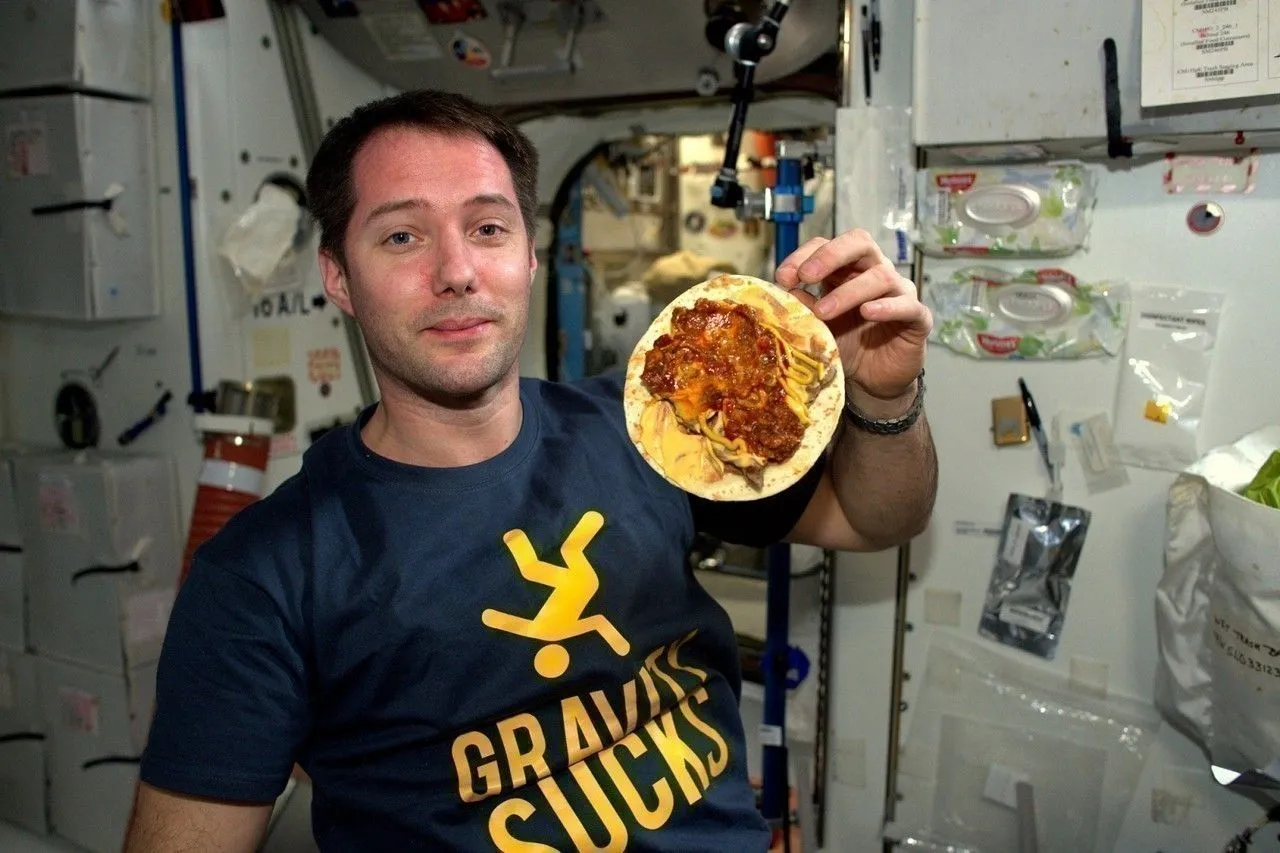Why does food taste different in space?
Published by Cédric,
Article author: Cédric DEPOND
Source: International Journal of Food Science and Technology
Other Languages: FR, DE, ES, PT
Article author: Cédric DEPOND
Source: International Journal of Food Science and Technology
Other Languages: FR, DE, ES, PT
Follow us on Google News (click on ☆)
A recent study led by researchers at RMIT University seeks to explain why food tastes different in space and proposes solutions to improve astronauts' diet.

X/Thomas Pesquet
International Journal of Food Science and Technology has published groundbreaking research exploring how common food aromas are perceived differently in a simulated International Space Station (ISS) environment. Scientists used virtual reality to replicate ISS conditions and asked 54 participants to evaluate the scents of vanilla, almond, and lemon in this setting.
The study reveals that the scents of vanilla and almond appeared more intense in the space simulation, while the scent of lemon remained unchanged. Benzaldehyde, a sweet compound present in vanilla and almond, might explain this heightened perception.
According to Julia Low, co-leader of the study, these findings suggest that isolation and confined environments might alter how people perceive aromas. Additionally, other factors such as feelings of loneliness and unfamiliarity with the environment could influence this perception.
These discoveries are supported by previous research showing that microgravity causes a shift of bodily fluids toward the head, leading to nasal congestion and partial loss of smell, which affects the taste of food.
For Gail Iles, former astronaut trainer and co-researcher, a long-term goal is to design better meals for long-duration missions, like those planned for Mars. "Even after the effects of nasal congestion from fluid shift have subsided, astronauts still do not enjoy their food," she explains, highlighting the importance of advancing this research to ensure the health and well-being of crews on extended missions.
This study could also be beneficial on Earth, particularly for improving the diet of individuals living in prolonged isolation, such as in nursing homes or submarines. By adapting food flavors, it may be possible to make meals more enjoyable and encourage better food consumption.
These efforts pave the way for personalized diets for people in isolation, whether in space or on Earth, and lay the foundation for future research on aroma perception in confined environments.